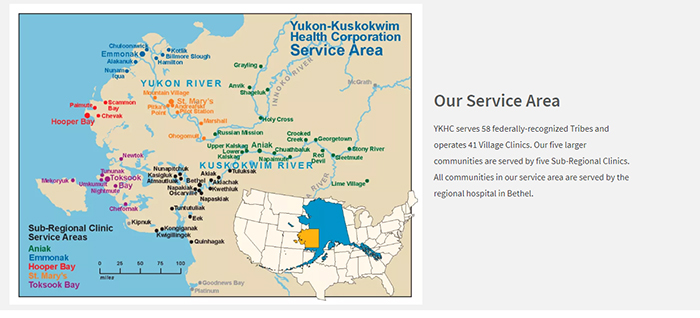Bereavement
Another area where child life services have become invaluable is bereavement. Joanna founded a bereavement committee at ANMC and is often consulted by the Palliative Care team to support children of adult patients and prepare them to visit a loved one in the Critical Care Unit. One family Joanna supported included three young children who were very close to their grandmother, who was then in the Critical Care Unit and hooked up to a variety of machines. The children wanted to visit their grandmother, and Joanna prepared them by sharing photos of hospital equipment in her room and discussing changes in her appearance and ability to communicate. Thanks to this thorough and developmentally appropriate preparation, “the kids were holding her hand and talking to her, even though she was intubated and sedated. They loved that time they got with her!”
Christopher Piromalli, DO, MPH, Palliative Care Medical Director, values Joanna’s role in helping families and children cope. He also recognizes her skill in “addressing health care team distress and ways to foster positive team dynamics. Joanna transformed the way I see and understand Child Life Services. She is a beacon of hope in times of distress, modeling compassion and whole person care in everything that she does.”
Seam Timpane, MD, Palliative Care, also notes how Joanna has transformed patient- and family-centered care:
“Joanna is a fierce advocate for support of children throughout our hospital. She is challenging the status quo not only for pediatric care but for adult patients with children, grandchildren, nieces, and nephews who need developmentally appropriate communication and emotional support. She regularly goes above the call of duty and is also critical team member for end-of-life care with her expertise in legacy work and memory making. I can’t imagine our job without her.”
Joanna consults for the Mother Baby Unit when there is an expected or unexpected death of a baby. She supports siblings, helps create legacy mementos, and provides support and resources to parents. This type of bereavement support is often performed by child life professionals, but the fact that some families live in remote villages can make providing family-centered care challenging. In one case, Joanna was not able to work with the children directly before the birth because of the geographic distance. During her prenatal visits, the mother expressed interest in helping her children understand and cope with the fact that their new baby brother would not live long, so Joanna helped her create a book that she could read to them when she returned home to her village. The mother and her children read the book many times before the entire family flew in for the delivery. At that point, Joanna was able to work with the children in person, and she helped them make mementos and take photos. With Joanna’s help, the kids chose to make a little T-shirt for a stuffed animal to wear with their little brother’s handprints on it.
Only in Alaska
Joanna’s patients like to share photos of their remote communities, which may lack crucial infrastructure, such as road systems or running water. Providing and receiving medical care in Alaska’s remote and sparsely populated regions is complex and challenging. The potential for considerable delay in receiving care from an appropriately trained provider is significant.
For example, if a child has signs of appendicitis, they will first visit the village clinic to be treated by a Community Health Aide/Practitioner (CHA/P). In Alaska, CHA/Ps are the frontline of health care in their communities, providing emergency, acute, chronic, and preventive care for all ages. They assess and treat patients according to standard protocols and as directed by supervising physicians. In many cases, CHA/Ps are patients’ first contact within the network of health professionals in the Alaska Tribal Health System. They play a critical role in assessing the needs of those who seek medical care, and Joanna has met health aides who regularly start IVs, give medication, and some who have even delivered babies.
CHA/Ps communicate with local hospitals, so the next step for a child in the Yukon-Kuskokwim region with a possible appendicitis would be to fly on a small plane from their village to Bethel to receive an ultrasound or CT scan and receive medical treatment by a physician. Finally, if an appendicitis diagnosis is likely, the child will take another plane, this time to Anchorage for an appendectomy. Although pain medication is provided as soon as possible, it may not be enough depending on the injury or wait time. Weather may cause additional delays because pilots must wait until conditions are safe for travel.


Another unique aspect of Tribal hospitals in Alaska is they are permitted to serve game meat. Per the Traditional Foods Nourishment Act of 2013, traditional Native foods can be served in hospitals, schools, childcare and eldercare facilities. Patients at ANMC benefit from the healing and comforting effects of traditional Native foods. Every Tuesday, the hospital kitchen prepares seal stew, which is offered to inpatients as a special treat. The hospital menu also offers akutaq (Eskimo ice cream), which is traditionally made with seal fat and now features Crisco along with berries and salmon. Far from the comforting traditions of home, children and families welcome familiar comfort foods that make the hospital experience seem less foreign.
Community Outreach in the Yukon-Kuskokwim Region
In addition to working as the only child life professional at ANMC, Joanna supports the state’s children through community outreach. She has focused her efforts on Bethel, the largest community in the Yukon-Kuskokwim region. Located on the tundra and not connected to a road system, the Yukon-Kuskokwim region is the size of Oregon and home to more than 25,000 people, approximately 50 percent of whom are under the age of 18. Joanna partners with community health care providers to ensure the best care and coping skills for these children and youths before they visit the hospital in Anchorage. With this goal in mind, Joanna visited Bethel to present on the benefits of child life practice and to encourage local providers to make their facilities more accessible and comfortable for children.

Joanna visited Bethel to give a grand rounds on child life to the providers at the Yukon-Kuskokwin Health Corporation (YKHC). According to local pediatrician Elizabeth Sanseau, MD, MS, Joanna’s talk was “excellent and provocative” and included “tricks of the trade in inpatient, outpatient, and emergency settings.” Joanna shared simple and affordable tips such as versatility of bubbles and play dough; bubbles can distract babies and help older kids learn to take deep breaths while playdoh can be used for distraction for young children and as a stress ball for older patients. Joanna also imparted valuable advice about how to make medical procedures and instruments less intimidating by removing unnecessary and potentially worrisome medical supplies from the room beforehand.
Her advice was well received and led Dr. Sanseau to purchase an iPad and download apps Joanna suggested would be helpful distraction aids for children during procedures. After Joanna’s grand rounds at YKHC, she donated many boxes of child life supplies including books, art materials, and a Wii, and she has plans to return for a nursing skills fair where she can educate additional providers about child life. Dr. Sanseau hopes Joanna can “return and help us develop our own child life program at YKHC.” Joanna shares this goal and has begun researching funding through grants.
When Joanna became certified in 2010, she “didn’t have one population in mind to work with. I just wanted to help make the hospital experience more positive for all kids.” Over the course of her career, she has helped children in California, Utah, Arizona, Minnesota, and Alaska. Creating the first child life program at a Tribal hospital is one of the highlights of her career, and she is determined to bring child life services to as many Alaskan children as possible.
If you are interested in learning more about the open position at ANMC in Anchorage, please email Joanna at jkdavis@anthc.org.
See more Child Life in Action.